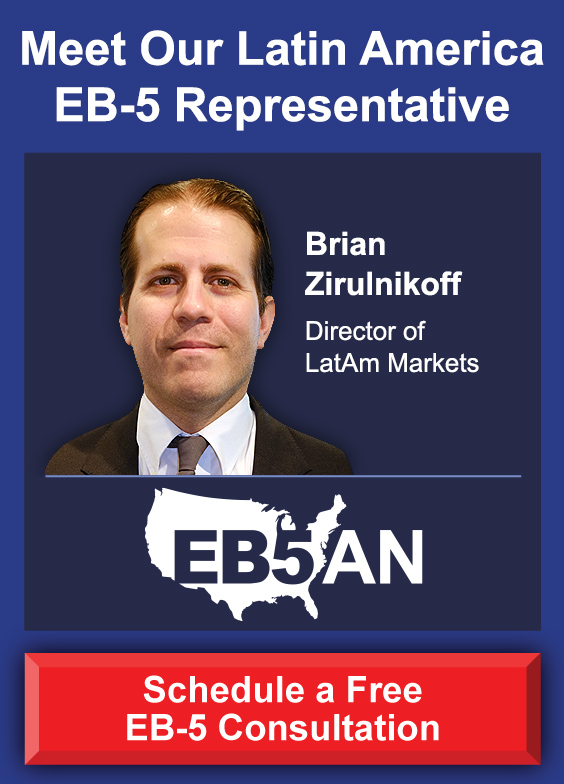
Calls for reform to the United States’ popular residency-by-investment program, the EB-5 Immigrant Investor Program, have grown louder and more numerous over the years, especially as United States Citizenship and Immigration Services (USCIS) issues continue to accumulate and EB-5 backlogs grow ever longer. EB-5 investment stakeholders have become particularly vocal about the need for EB-5 reform in light of the June 30, 2021, sunset date of the EB-5 Regional Center Program, which is in danger of termination if the industry fails to enact sufficient reform.
EB-5 reform is necessary for a number of reasons—the interests of honest investors and project developers must be protected, while malicious actors and fraudulent activity must be detected and eliminated. Strengthened integrity measures could improve the public image of the EB-5 program, which is routinely dragged through the dirt by the media. EB5 investment stakeholders have also been pushing for permanent or at least long-term reauthorization of the regional center program to safeguard the EB-5 program’s job-creating and economy-stimulating capabilities further into the future.
But those aren’t the only reasons—according to Senator Guy Reschenthaler, a Republican representative in Pennsylvania, reform is necessary to curb national security vulnerabilities that can be exploited by the United States’ foreign adversaries, especially China.
How the Chinese Communist Party Could Exploit the EB-5 Program
The massive EB-5 demand from Chinese investors has long been a hallmark of the program, which has only in the late 2010s started to see more diversity in the nationalities of investors. In fact, between 2015 and 2018, roughly 80% of the EB-5 visas available each year—around 10,000—have been issued to Chinese nationals. This in itself is not suspicious: China houses the world’s largest population, and a Chinese national can hardly be blamed for the desire to escape China’s authoritarian government.
However, according to a letter penned by Reschenthaler and fellow Republican senator Jim Jordan on June 15, 2020, evidence of possible Chinese Communist Party (CCP) abuse of the EB-5 program has been mounting. The CCP may be pursuing EB-5 investments as a simple and relatively quick means of obtaining U.S. permanent resident status for its members, undermining U.S. national security. The letter requested a U.S. Government Accountability Office (GAO) investigation into the extent of the abuse by the CCP.
With U.S. green cards, CCP members could move freely about the United States, covertly infiltrating everyday U.S. society. Under this cover, spies could steal intellectual property and state secrets, undermine U.S. democratic processes, and more. The inadequate integrity measures of the EB-5 program as of March 2021 constitute a warm invitation to CCP members and other malicious actors who wish to interfere with the U.S. way of life.
How EB-5 Reform Could Strengthen National Security
EB-5 reform could introduce improved resources and standards for detecting exploitation by nefarious actors, especially the CCP, better thwarting attempts from foreign adversaries to infiltrate the United States. USCIS already has the ability to evaluate an EB5 investment petition for national security concerns, but regardless of their findings, they cannot then deny a petition solely on national security grounds. This oversight in EB-5 integrity, which leaves the door open to abuse and could undermine the security of the United States, must be addressed in EB-5 reform.
More funding for USCIS would also go a long way in protecting the national security interests of the United States in EB-5 investment matters. Like many businesses and individuals alike, USCIS suffered financial hardship in 2020 and even announced its intent to furlough more than 13,000 employees—more than 70% of its workforce. Fortunately, emergency funding saved these jobs and kept the immigration body afloat, allowing USCIS to plough forward with adjudications.
But USCIS’s financial uncertainty remains. The agency has struggled to gather the necessary funds to support its work, even though a thriving USCIS is critical to U.S. national security. In addition to reform to the EB-5 program, proper funding and support for USCIS is crucial to maintaining secure borders and identifying fraud or malicious actors while remaining a welcoming beacon to ambitious immigrants worldwide. A well-funded and -equipped USCIS is also beneficial for EB-5 investment participants, as it allows the agency to process I-526 petitions more expediently.
EB-5 reform has already been proposed—Senators Chuck Grassley and Patrick Leahy are pushing a bill that would introduce widespread changes to the EB-5 program, including strengthened integrity measures, stronger protections for honest EB5 investment participants and project developers, and long-term reauthorization for the regional center program. While some industry leaders have voiced concerns that the proposed reform doesn’t go far enough, it’s a strong start, and it’s just what the EB-5 world needs.











